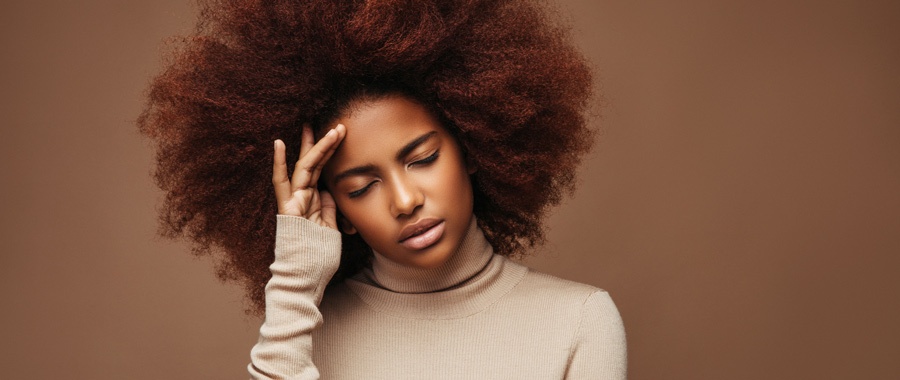Engaging in controversial conversations is a skill that requires not only conviction but also a profound understanding of the nuances that accompany race, identity, and societal dynamics. This challenge is heightened for Black women, who often navigate a complex interplay of intersections in both their identities and the societal dialogues surrounding them. The Baha’i teachings provide a comprehensive framework for approaching these conversations, emphasizing principles such as unity in diversity, the elimination of prejudice, and the pursuit of justice. This article delineates essential strategies and insights rooted in Baha’i teachings that can aid Black women in successfully navigating these often tumultuous discussions.
Understanding the Landscape
Before entering into controversial conversations, it is imperative to comprehend the socio-cultural landscape. For Black women, the dual burden of racial and gender biases can evoke feelings of vulnerability. Yet, the Baha’i emphasis on understanding the complexities of human nature and the interconnectedness of all people serves as a powerful lens. Recognizing that every individual’s experiences are influenced by a multitude of factors can foster empathy.
Moreover, Baha’i teachings encourage practitioners to view differences in race, gender, and background not as impediments but as opportunities for enriching dialogue. It is crucial to appreciate that the diversity of perspectives not only enhances discussions but also cultivates deeper understanding. By acknowledging the layers that constitute our identities, one can engage in conversations with a sense of purpose and clarity, aimed at bridging divides rather than deepening them.
Preparation: Knowledge as Empowerment
Preparation forms the cornerstone of effective advocacy and dialogue. Black women ought to arm themselves with knowledge, both about the topics at hand and about the Baha’i principles that pertain to those discussions. Topics such as racial justice, gender equity, and socio-economic disparities are often fraught with historical and emotional weight. Understanding both the contemporary implications and the historical context of these subjects equips one to approach conversations with insight and gravity.
Further, familiarity with Baha’i texts and teachings can provide invaluable guidance. The writings of Baha’u’llah and Abdu’l-Baha advocate for the innate equality of all human beings, emphasizing justice and compassion. Having doctrinal references at hand can substantiate claims during discussions and illustrate a consistent ideological framework that promotes inclusivity and understanding. Such preparatory efforts foster confidence and fortitude, empowering Black women to articulate their perspectives effectively.
Cultivating Tact: The Art of Communication
Engaging in controversial dialogues necessitates an artful approach to communication. The Baha’i teachings emphasize the importance of kindness and respect, urging individuals to communicate in a manner that reflects these virtues. Active listening—a fundamental tenet of effective dialogue—must be prioritized. This entails centering the voices of others, truly attempting to understand their perspectives before responding. Patience, humility, and an openness to different viewpoints can dissolve confrontational barriers and usher in mutual respect.
Vulnerability also plays a critical role in fostering genuine dialogue. Sharing personal experiences can create a space where others feel safe to share their own. This mutual exchange of stories can unveil deeper connections and soften contentious edges. Nevertheless, while sharing personal narratives, one should remain aware of the overarching goal: to promote understanding rather than to position oneself solely as a victim. The Baha’i commitment to elevating collective dialogue positions every participant as a contributor to the greater good.
Emphasizing the Pursuit of Justice
Central to Baha’i teachings is the concept of justice, which transcends mere fairness; it encompasses a dynamic pursuit of equity for all, particularly marginalized groups. Navigating controversial conversations as a Black woman provides a unique opportunity to embody and advocate for this principle. Justice-oriented discussions must not only highlight individual experiences but also address systemic inequities at their roots. Through a reasoned lens, one can help illuminate the structural challenges that perpetuate biases and injustices.
Moreover, commitment to justice propels ongoing questioning of one’s surroundings and encourages the challenging of oppressive narratives. Black women representing various spheres, whether personal or professional, can strive to inject an ethos of change into these conversations. This includes calling attention to implicit biases, advocating for inclusive policies, and promoting allyship amongst broader communities. By doing so, the pursuit of both equality and justice becomes a shared journey rather than an isolated struggle.
Reflecting on Outcomes
After engaging in conversations, reflecting on the outcomes is paramount. Baha’i teachings advocate for self-examination and personal growth. Analyze the dynamics of the dialogue: what strategies worked well? Where could improvements be made? This iterative reflection allows individuals to refine their approach continuously, enhancing both the effectiveness of their advocacy efforts and their ability to engage with opposing viewpoints.
Additionally, this reflection can illuminate opportunities for deeper engagement within one’s communities. Discussions involving controversial topics often prompt further inquiries and actions. Creating platforms for continuous dialogue can embolden both personal and communal growth, allowing for an ongoing commitment to unity and understanding.
Conclusion
In summation, navigating controversial conversations as a Black woman can be an intricate yet profoundly transformative experience. Drawing on Baha’i teachings equips individuals with the tools necessary for effective engagement, emphasizing unity, knowledge, tact, justice, and reflection. By applying these principles, Black women can not only voice their own concerns but also catalyze profound societal change, advancing conversations that prioritize empathy and collective understanding. Thus, embracing these teachings paves the way for a more just and inclusive world—one conversation at a time.
